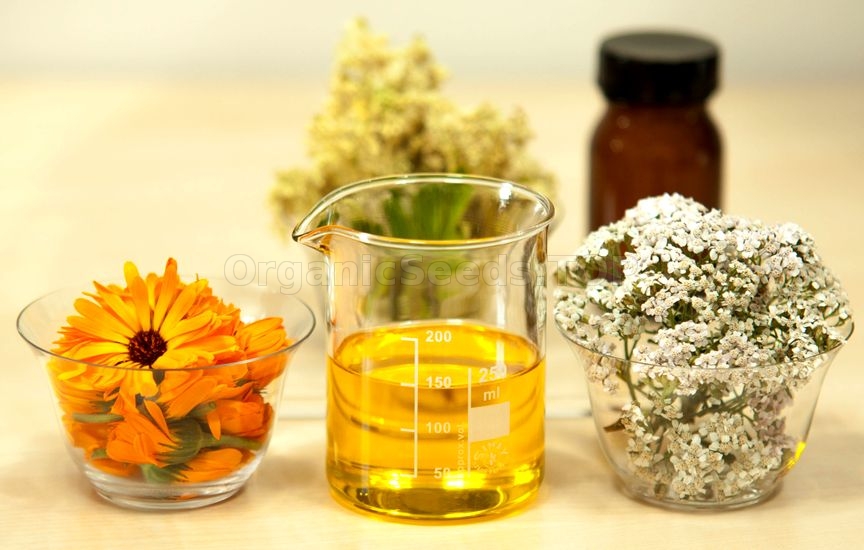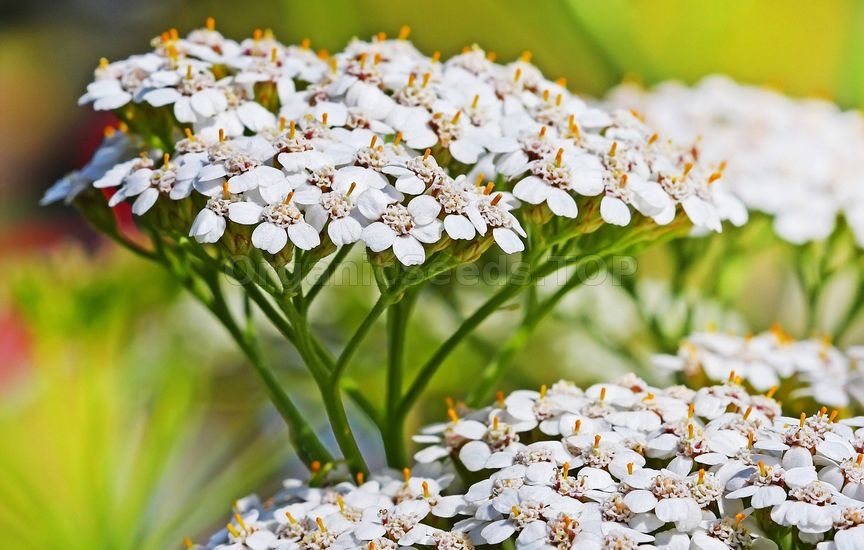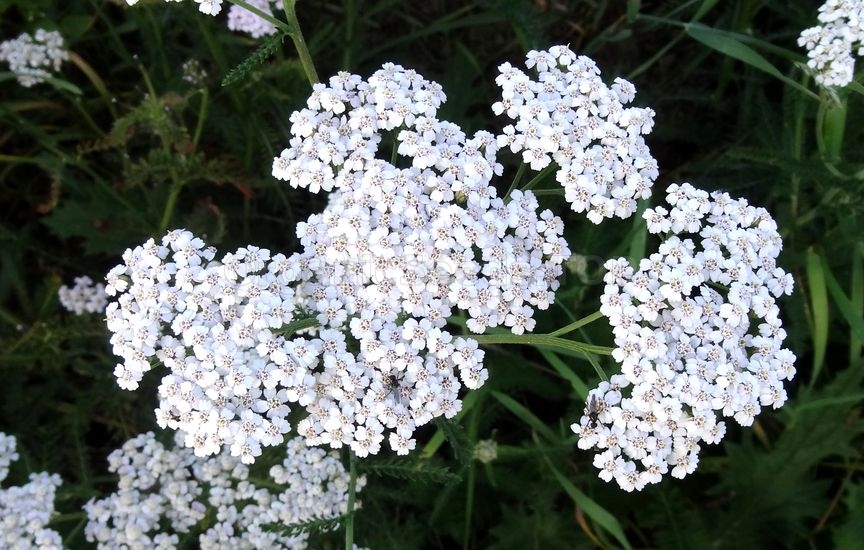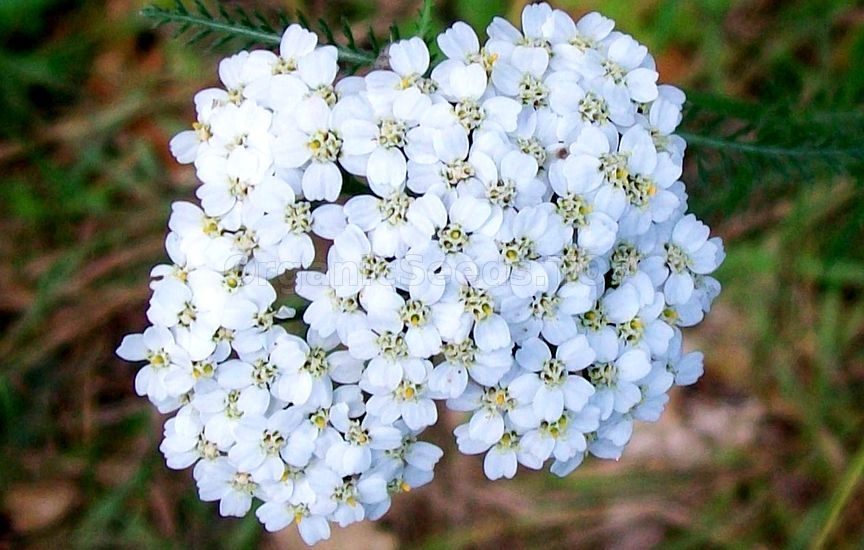Yarrow Benefits |
 Yarrow, a herb closely related to chamomile and chrysanthemums, has been used since ancient times by people and cultures around the world. Traditionally, it’s been used to reduce inflammation (especially in the digestive tract), to treat skin wounds and minor bleeding, and as a sedative to relieve anxiety or insomnia. You may not have even heard of it, but in the 17th century, this herb was actually a very popular vegetable. Back then, the leaves were commonly prepared and consumed like spinach. Today, it’s an underutilized culinary and medicinal herb. Do you like tarragon? Yarrow has a similar flavor profile and can be used in place of tarragon in recipes. With a sweet yet bitter flavor, it really can make any dish more interesting, and you’ll reap health benefits galore too. Let me tell you all about this intriguing ancient herb. 1. Heals Skin Wounds and Stops Bleeding Yarrow has been employed for natural wound treatment for centuries. The chemical achilleine present in this herb is known for its ability to stop bleeding. In powdered form, it can be sprinkled on wounds to not only stop bleeding, but also to to dull pain.
In addition, it’s a natural antiseptic so it can prevent wounds from getting infected. This is why many healing ointments include yarrow as a key ingredient. One study even showed how yarrow oil could provide wound-healing from napalm (a flammable liquid used in warfare) burns. Now that’s one serious wound to be able to heal. It’s really no wonder that in classical times, yarrow was referred to as “herba militaris” for its ability to stop war wounds from bleeding. 2. Potential Amenorrhea Aid Surprisingly, yarrow has also been used in traditional herbal medicine to actually encourage bleeding in certain health conditions. One of these health issues is amenorrhea, which is an abnormal absence of menstruation. Yarrow, rue, motherwort and partridge berry are herbal emmenagogues. As an emmenagogue, yarrow can help to stimulate blood flow in the pelvic area as well as the uterus and encourage menstruation. Unfortunately, this usage has not yet been confirmed by clinical research, though it’s been used this way for centuries.
3. Mild Sedative for Anxiety A 2012 study published in the Journal of Ethnopharmacology looked at the anti-anxiety effects of yarrow in animal models. Researchers used a hydroalcoholic extract from the aerial parts of yarrow on animal subjects in open-field tests. They found that it had anti-anxiety affects after both short-term and long-term administration to subjects.
Furthermore, they found that the yarrow had an effect similar to diazepam (Valium), which is a common prescription for anxiety issues. The study also showed that it remained effective after short-term, repeated administration. 4. Naturally Treats Mastitis Yarrow can really help when it comes to alleviating the symptoms of mastitis. Mastitis is a breast infection that mostly occurs among women who are breast-feeding. When you have mastitis, it’s a smart idea to alternate between warm and cold compresses since cold helps relieve pain while warmth increases circulation.
Additionally, natural herbs like yarrow contain anti-inflammatory and antibacterial properties. Yarrow has been found to be really helpful for women suffering from mastitis. Specifically, leaf poultices provide almost instantaneous pain relief and help heal sore, cracked nipples. 5. Reduces Inflammation Traditional herbal medicine in China, Europe and India has used this to calm inflammation for a variety of health issues, especially inflammation in the intestines and female reproductive tracts. Extracts have been shown to have anti-inflammatory properties.
Researchers believe that yarrow’s ability to quell inflammation is related to the fact that it contains both flavonoids and sesquiterpene lactones. The herb displays not only anti-inflammatory abilities, but also astringent properties. This is why yarrow is often included in topical products for inflammatory skin problems like eczema. 6. Gastrointestinal Benefits The antispasmodic activity of yarrow makes it useful for unwanted gastrointestinal concerns like diarrhea, flatulence and cramping. Animal studies have shown that it can reduce smooth muscle spasms that contribute to GI complaints. When taken internally, the antispasmodic ability is most likely due to the plant’s flavonoid fractions.
7. Helpful for High Blood Pressure and Asthma A 2013 study published in Phytotherapy Research evaluated achillea millefolium‘s hypotensive, vasodilatory and bronchodilatory activities. In other words, its ability to lower high blood pressure, relax blood vessels and improve breathing. Yarrow’s effects on the study’s animal subjects backed up the medicinal use in hyperactive cardiovascular and airway disorders like high blood pressure and asthma. You may need:Organic Gold Yarrow Seeds (Achillea Filipendulina) |
|
|
